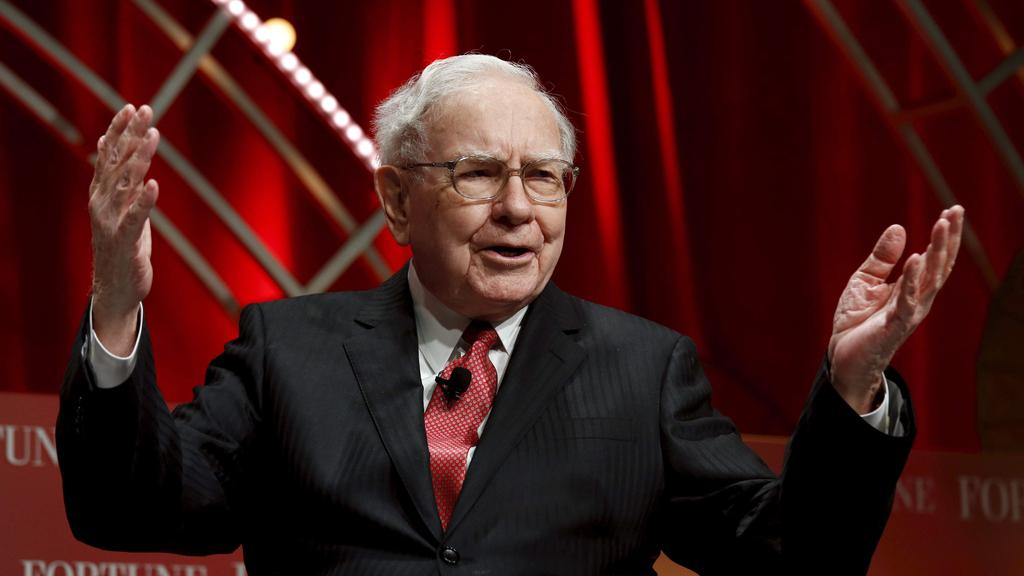
Warren Buffett’s Investment Advice: A Deep Dive
Updated Jan 15, 2024
Its simplicity and profound wisdom often characterize Warren Buffett’s investment advice. Let’s delve into some of his most famous quotes and their context.
“Don’t watch the market closely.”
Buffett gave this advice during a time when many were worried about their retirement savings. The context here is important. During periods of market volatility, it’s easy to become consumed by the daily fluctuations in your portfolio’s value. However, Buffett advises against this. Instead, he suggests focusing on the long-term performance of your investments, which is more relevant to your financial goals.
As long as you are invested appropriately for your goals, stay away from your investment portfolio.”
Buffett emphasizes the importance of a clear investment strategy that aligns with your financial goals. Once you have that in place, there’s no need to monitor your portfolio constantly. This advice is particularly relevant in today’s digital age, where checking your portfolio on your phone or computer is easy. However, constant monitoring can lead to impulsive decisions that derail your long-term investment strategy.
Only buy something that you’d be perfectly happy to hold if the market shut down for 10 years.“
This quote encapsulates Buffett’s long-term investment philosophy. When he invests in a company, he’s not just buying a stock but a piece of a business. He believes in investing in companies with solid fundamentals and strong growth prospects, regardless of short-term market fluctuations. This approach requires a deep understanding of the company and confidence in its long-term potential.
“If you aren’t thinking about owning a stock for 10 years, don’t even think about owning it for 10 minutes.”
This quote further underscores Buffett’s long-term investment strategy. He believes that if you’re unwilling to hold a stock for 10 years, you probably shouldn’t buy it. This advice serves as a reminder to avoid short-term speculation and instead focus on investing in quality businesses that can deliver sustainable growth over the long term.
In conclusion, Warren Buffett’s investment advice is rooted in long-term investing, patience, and discipline. By understanding the context behind his quotes, investors can gain valuable insights into his investment philosophy and apply these principles to their investment strategies.
Unpacking Warren Buffett’s Wisdom on Investment Portfolio Management
Warren Buffett’s advice extends beyond individual stock picks to the broader aspects of investment portfolio management. Let’s delve into the context and implications of some of his notable quotes.
“When Berkshire buys common stock, we approach the transaction as if buying into a private business.”
Buffett’s approach to investing goes beyond simply buying shares in a company. He views each investment as purchasing a piece of a business, implying a long-term commitment and a deep understanding of the company’s operations, financials, and growth prospects. This perspective encourages investors to think beyond short-term price movements and focus on the underlying business’s long-term value.
“Accounting consequences do not influence our operating or capital-allocation decisions. When acquisition costs are similar, we much prefer to purchase $2 of earnings that are not reportable by us under standard accounting principles than to purchase $1 of reportable earnings.”
Here, Buffett emphasizes the importance of focusing on economic reality rather than accounting representations. He suggests that the real value of an investment lies in its ability to generate earnings, not in how those earnings are reported. This advice encourages investors to look beyond the surface-level financial statements and understand the underlying business’s economic value.
“You are neither right nor wrong because the crowd disagrees with you. You are right because your data and reasoning are right.”
This quote underscores the importance of independent thinking in investing. Buffett warns against following the crowd and stresses the importance of basing investment decisions on solid data and logical reasoning. This is a cornerstone of contrarian investing, a strategy that often involves going against prevailing market trends.
“Do not take yearly results too seriously. Instead, focus on four or five-year averages.”
Buffett advises against getting swayed by short-term financial results. Instead, he suggests focusing on longer-term performance to understand a company’s health and profitability better. This approach aligns with his long-term investment philosophy and encourages investors to be patient and avoid knee-jerk reactions to short-term market fluctuations.
“Focus on return on equity, and not earnings per share.”
Return on equity (ROE) measures a company’s profitability concerning its equity. Buffett believes ROE is a more accurate indicator of a company’s financial health and growth potential than earnings per share (EPS), which factors like share buybacks can influence.
“Turnarounds seldom turn.”
Buffett warns against investing in companies based on the hope of a turnaround with this quote. He suggests that struggling companies often continue to work, and their turnaround plans rarely materialize. This advice encourages investors to invest in fundamentally strong companies rather than trying to find value in struggling businesses.
In conclusion, Warren Buffett’s advice on investment portfolio management offers valuable insights into his investment philosophy. By understanding the context behind his quotes, investors can apply these principles to their investment strategies and make more informed investment decisions.
Enhance Returns on Warren Buffett Investment Advice
Applying mass psychology and technical analysis to Warren Buffett’s stock picks doesn’t guarantee instant success. Instead, these tools act as a compass, guiding investors towards potential investment opportunities. Yet, like any navigational instrument, they require skilful handling.
Investors must exercise patience, waiting for the market conditions to align with their investment goals. Discipline is equally vital, enabling investors to remain steadfast in their investment strategy, even when the market seems to turn against them.
Consider Buffett’s investment in the Washington Post in the early 1970s. The stock was heavily oversold due to widespread fear following the Nixon impeachment scandal. However, Buffet saw the intrinsic value in the company and bought the stock by applying his patience and discipline. His $10.6 million investment ballooned to $1.3 billion over the next few decades, showing the potential rewards of this approach.
While mass psychology and technical analysis tools can enhance the success of Warren Buffett’s stock picks, their effectiveness hinges on the investor’s patience and discipline. When applied skillfully, these principles can unlock a world of investment opportunities, paving the way for potentially higher returns.
More Mental Treats For The Mind

Market Timing Strategies: Debunking Flawless Predictions

Dow 30 Stocks with Dividends: A Winning Strategy for Income Investors

Collective Behavior Generally Takes Which of the Following Forms?

Market Psychology and Crowd Dynamics: Adapt, Adjust or Vanish

Harnessing Collective Behavior: Strategies for Investment Success

Unlocking Value in Equal-Weighted Index Funds: Benefits and Strategies

What Caused the 1987 Stock Market Crash: Could It Happen Again?

Active vs Passive Investors – The Power of Discipline

Investing allows you to beat inflation and maintain the purchasing power of your money over time

Mass Psychology of Fascism: Unmasking Bombastic News

OVV Stock Forecast: Buy, Hold, or Sell?

What Does a Death Cross Mean in the Stock Market? Exploring Its Significance

Financial Freedom Book: A Pinch of Salt, a Splash of Whiskey

Unveiling Secrets: Technical Analysis for Dummies

The Primary Purpose of Portfolio Diversification is to Finesse Your Investments for Optimal Returns
Warren Buffett’s Advice When Markets Tank


